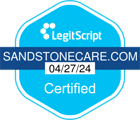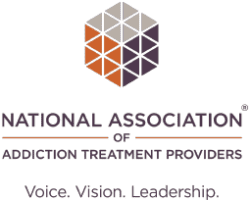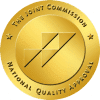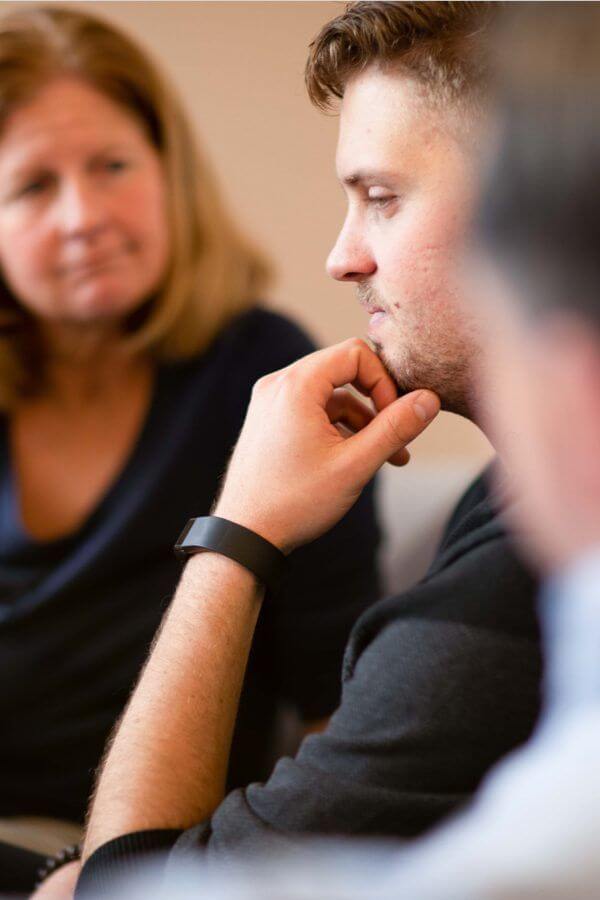Mental Health and Addiction Resources For Parents and Loved Ones
Mental health and addiction support for the entire family to heal together.





For parents and loved ones of those experiencing addiction or mental health issues, it’s common to feel overwhelmed, helpless, angry, and alone.
That’s why we provide an evidence-based treatment program focused exclusively on adolescents and their families. By treating the family system as a whole, we seek higher rates of success, addressing behaviors in context.

Sometimes it might feel like you’re out of options. That’s where we come in. Here are the first steps you can take to get started.
Even if your child or loved one isn’t ready to get help, you probably need support for yourself. Join a family support group and give us a call to find a family therapist ready to help you process this experience.
Calling your insurance provider and trying to manage the financials of treatment often adds additional stress. Verify your insurance online right now or give us a call and we’ll walk you through options and next steps.
It’s important to make sure your support system is set up to meet your needs, including academic and vocational support, psychiatric, mental health, and dual diagnosis. Even if we’re not the right fit, we’ll connect you to a program that is.
Is your child a young adult who is seemingly unable to move toward greater independence and self-realization?
Sometimes called failure to launch syndrome, these young adults may need treatment to move forward past contributing factors, such as drug addiction and underlying mental illness.
Parents come together virtually and support each other as they navigate the challenges of helping their teen or young adult who struggles with drugs, alcohol, and mental health concerns.
The Continuum of Care
Access a full range of treatments for mental health and substance use disorders. Whether you need a safe transitional living community, inpatient treatment, or outpatient therapy, we have a program to help.
5-21 days of 24/7 on-site medical supervision.
Our Medically-Assisted Detox and Inpatient Center offers private rooms and 24/7 medically supervised care to support a safe recovery from drugs and alcohol, followed by comprehensive treatment that addresses your physical, psychological, emotional, and spiritual needs.
60-90 days of on-site 24/7 treatment.
We offer residential treatment centers designed specifically for teens struggling with anxiety, depression, trauma, substance use, and co-occurring mental health disorders.
We help teens learn healthy coping skills so they can better handle daily challenges. Teens are provided with an intimate, serene environment with smaller group sizes and a focus on strengthening the family unit. Every client gets robust academic support by certified teachers to ensure clients stay up to date on their coursework.
2-6 months
Our Transitional Living Program can be combined with clinical programming to provide a comprehensive treatment experience for our young adult client’s struggling with substance use disorders.
Our homes are for individuals aged 18-30 and help clients establish a supportive community and accountability, while increasing independence and personal responsibility.
4 weeks of on-site day treatment.
Our Teen Young Adult Day Treatment program, also known as Partial Hospitalization Program (PHP), is a highly structured level of care that offers five days of robust programming a week.
Our two distinct mental health and substance use tracks help clients to stabilize, begin to understand their mental health and/or addiction struggles, and heal from them. We strive to help our clients become more like the person they want to be, without using negative coping strategies or substances to get there.
12 weeks of on-site or virtual treatment.
Our Teen & Young Adult IOP, or Intensive Outpatient Program, offers two distinct tracks to address our client’s needs, each track consisting of 3-4 days of weekly programming.
Our mood disorder track we are able to focus on mental health, depression, trauma, and anxiety. Our dual diagnosis track we are able to support client’s with substance use and mental health challenges. Each focuses on developing positive social, academic, and vocational habits while continuing with their job or school responsibilities.
We have felt included and supported and are so grateful for the care they’ve provided to our son at such a vulnerable and scary time.

My child is almost done with their program and I’ve seen a huge difference.
Your child may need some extra support if you have noticed them experiencing:
Don’t wait for things to get worse for your child. Getting help early for mental health and substance use concerns can make a real difference, making the recovery journey smoother and more effective.
We understand the unique struggles that teens and young adults face, and our tailored approach ensures that your family’s specific needs are addressed. After your initial call, if we find that Sandstone Care is a good fit for your situation, we’ll quickly arrange a thorough clinical assessment.

Our scientifically proven and evidence-based treatment process continues to earn national praise and foster relationships with the following:

The truth is we may not always be the right fit for you and your family. That doesn’t mean we don’t want to help.
Give us a call and we’ll help guide you to whatever the next right step is — even if it’s not with us.